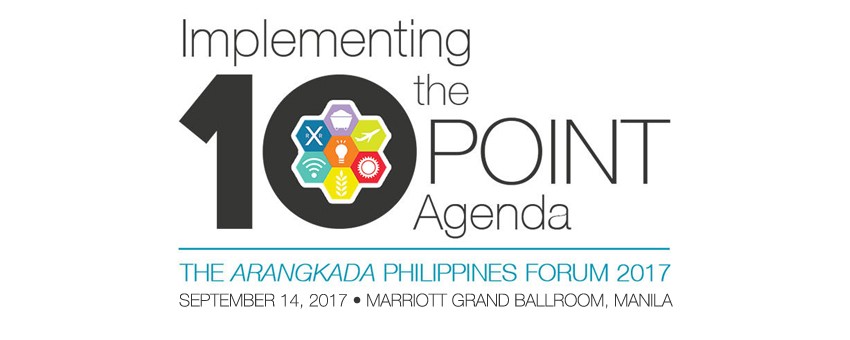
Foreign Businesses are looking forward to helping the Philippines reach the next level of development by helping it diversify away from economic pillars like business process outsourcing (BPO) by boosting agriculture, among other sectors.
The Joint Foreign Chambers of Commerce of the Philippines (JFC) said the sixth year of its Arangkada Philippines Forum will focus on “Implementing the 10-Point Agenda.” The forum is set for Sept. 14, where foreign businesses are expected to come up with policy recommendations for the government.
In a news conference yesterday, the JFC said that it will take on issues like opening up foreign investment, boosting value-added merchandise exports, incentivizing agriculture growth, tourism, infrastructure, mining, as well as the expansion of the BPO industry.
The basis for economic growth is currently narrow, according to Julian H. Payne, president of the Canadian Chamber of Commerce of the Philippines, as its drivers remain to be the BPO industry and overseas remittances.
“To join the ranks of all the industrialized countries, you’re going to have to diversify the economy considerably. That means really picking up agriculture, really picking up manufacturing, and diversifying it geographically,” he said.
“The BPO industry has enabled the middle class to rise. Why would you not support that? I think what the country needs is more BPOs. It has the potential to grow. If we don’t address these issues, we give those points away to China and India,” said European Chamber of Commerce of the Philippines (ECCP) President Guenter Taus, speaking in the context of President Rodrigo R. Duterte’s anti-Western statements, threatening Western investments here.
Benjie Garcia, executive director of the Australia-New Zealand Chamber of Commerce Philippines, Inc. (ANZCHAM) for his part, said that the Philippine BPO sector has reached maturity, raising the need to attract new investors and retain those currently here.
“BPO and shared services should be willing to focus on these two current developments, or be less competitive compared to India and China. We need to strengthen some incentives for this industry.”
They added that BPO firms should also look into developing capacity in the non-voice and knowledge sector, noting increasing competition within the region.
Mr. Taus raised concerns over the aging population in the agriculture sector noting the median age of farmers in the country is around 57.
“If we continue this way in 10 years, we will not have any farmers. So there needs to be some programs also to entice people to get back into farming again,” he said.
Mr. Payne for his part called for increased infrastructure and technology to accommodate small-scale family farms and help them evolve to more efficient commercial operations.
“I don’t think we’re going to be able to make huge progress in agriculture without addressing the need for larger, more efficient farming operations with appropriate infrastructure,” Mr. Payne said.
The business groups also said that backward and forward integration is the “key to success” in the mining industry, and urged the government to open refineries that will process extracted minerals, enabling the industry to capture more value added.
“If you want to develop mining, you have to develop in parallel an open environment to foreign investments to manufacturing, and encourage manufacturing,” Mr. Payne said.
ANZCHAM meanwhile said that it will be sharing best practices and experiences with the Philippines, given its technologically advanced mining companies that comply with international standards.
Moreover, foreign businesses also view tourism as a priority sector, but the infrastructure gap will remain as a longstanding challenge in attracting more foreigners to come.
However, the effect of the infrastructure shortfall is not exclusive to tourists.
Ho Ik Lee, president of the Korean Chamber of Commerce of the Philippines, said that South Korean firms have been planning to leave the Philippines, due to high logistics costs, which is about three times that of Vietnam.
Most South Korean companies located in economic zones are leaving the Philippines, and moving to Vietnam. “The costs are killing the manufacturing [industry],” he said.
The forum in September will have panel discussions on the infrastructure gap; industrialization; agribusiness, the creative industries, and tourism; disruptive technologies; and the future of the work force.
“We mustn’t look at each one just alone. We have to look at the combined impact, in what it means in terms of the long-term industrialization of this country, so it becomes one of the industrialized countries, which is what we are all looking for in the end.” said Mr. Payne.
Source: Business World, Elijah Joseph C. Tubayan